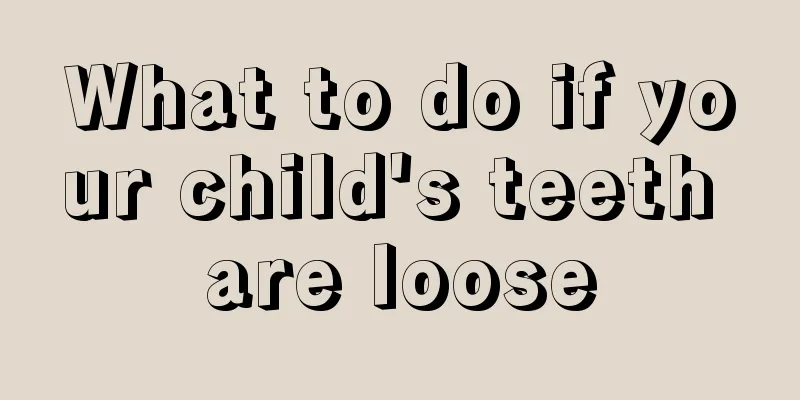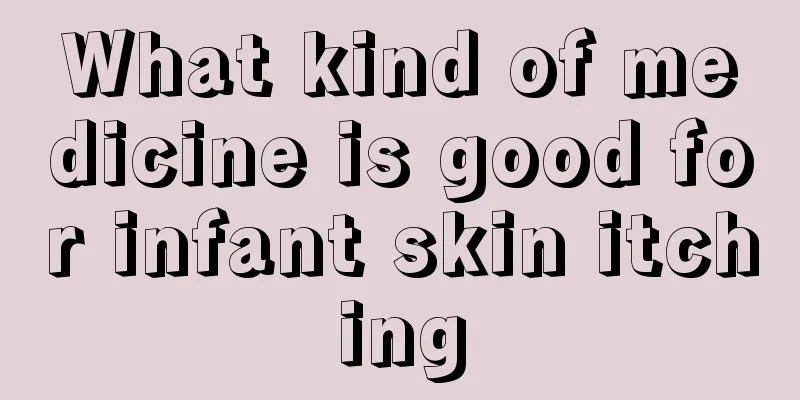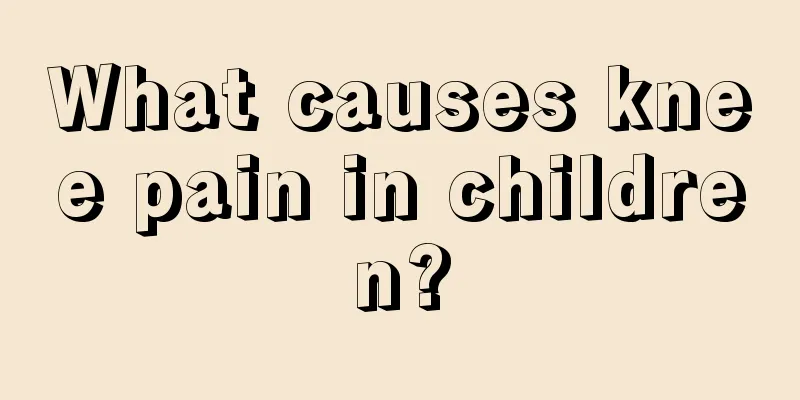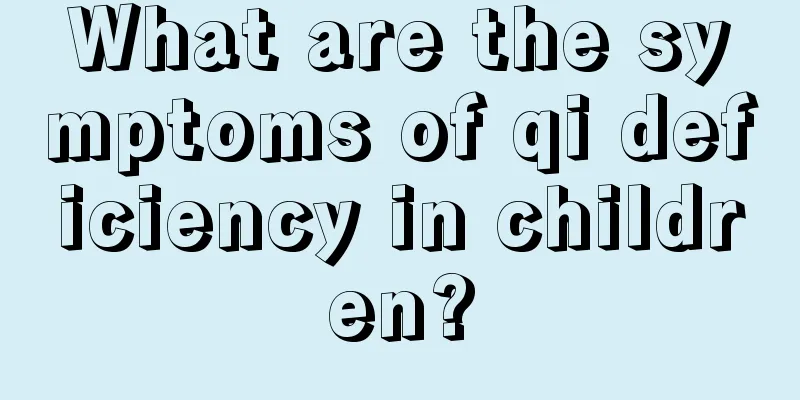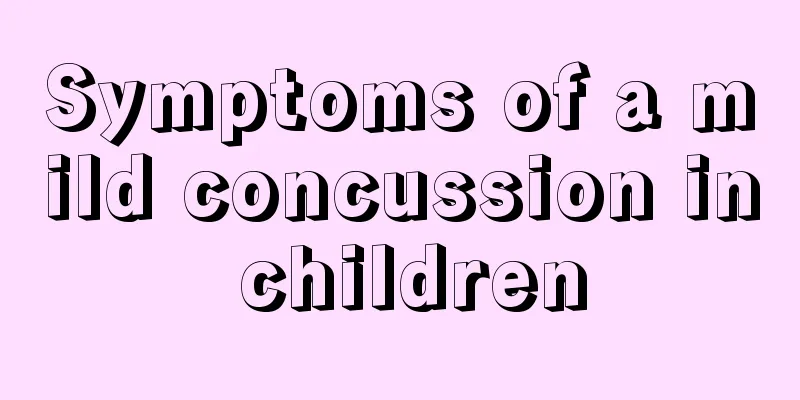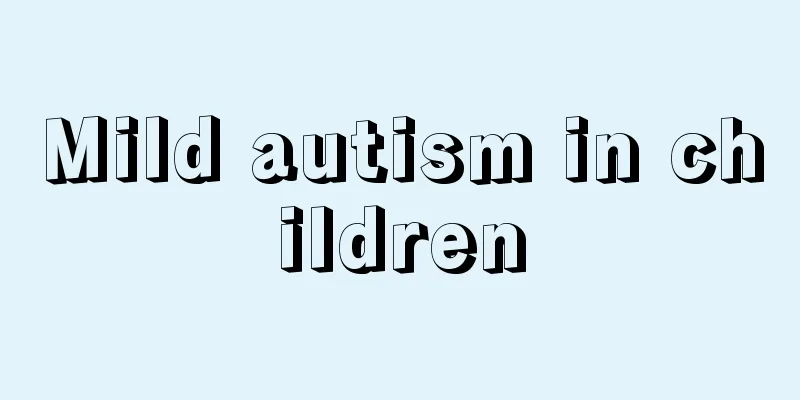What are the symptoms of dysphagia in infants with cerebral palsy?
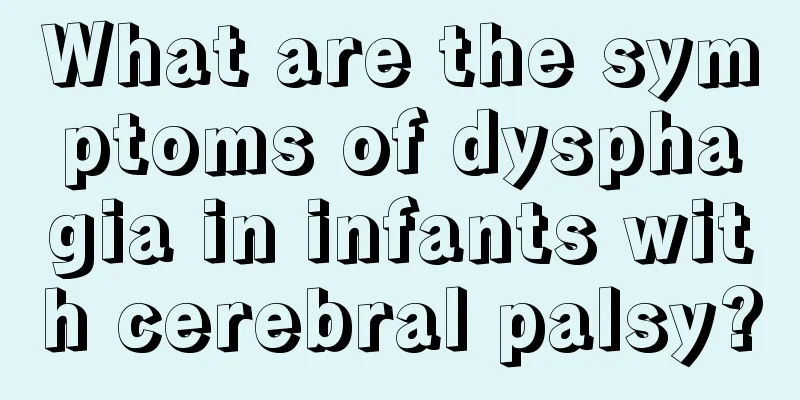
|
Children with cerebral palsy need multi-faceted treatment, and the first problem to be solved is eating. Because it is very difficult for babies with cerebral palsy to swallow. Many parents are not very clear about this issue. So what are the symptoms of dysphagia in infants with cerebral palsy? This is a question that many parents of infants with cerebral palsy want to know. Here is a brief introduction to this issue. What are the symptoms of dysphagia in infants with cerebral palsy? Common symptoms are as follows: 1. Oral preparation stage and oral stage These two stages are affected by the degree of voluntary movement disorders. The main symptoms include: poor accuracy when eating due to limb movement disorders, often manifested as poor position and unstable posture of the trunk, head and neck, and food cannot be accurately delivered to the mouth; the mouth is opened too wide or the mandibular movement is not flexible when eating; the residual oral primitive reflexes and reduced stimulation often lead to oral hypersensitivity, decreased oral entity discrimination, and tongue pushing food out; affected by the joint reaction, the control of lip closure is poor, and the pressure between the lips when closing is insufficient, so that food cannot be retained in the mouth; functional defects of the orbicularis oris muscle can lead to saliva and/or food overflow in the mouth. 2. Children with severe dysphagia in the esophageal stage will have their normal esophageal and gastrointestinal motility affected due to long-term nasogastric feeding. After food enters the esophagus, esophageal peristalsis is slow and the contraction function of the lower esophageal sphincter decreases, leading to gastroesophageal reflux. 3. Children with cerebral palsy in the pharyngeal stage have poor ability to control the oropharyngeal muscles, which often leads to incomplete swallowing and some food remaining in the pharynx. At the same time, due to swallowing and breathing regulation disorders, the range of the larynx to be raised forward and upward is insufficient, and the glottis cannot be completely closed, resulting in aspiration and choking. The above is an introduction to the symptoms of dysphagia in infants with cerebral palsy. I hope the above introduction will be helpful to everyone. For children with cerebral palsy, the earlier the treatment, the greater the chance of recovery. Parents and friends must have confidence. Caring for a child with cerebral palsy is not an easy task, so parents must be prepared for a long battle. |
<<: What are the commonly used massage techniques for vomiting in children?
>>: What medicine should children take for colds and flu?
Recommend
What causes high lead levels in infants?
Lead is a heavy metal element. If the content of ...
Can a two month old baby sleep on his side?
The addition of a new member to the family is a j...
What should parents do if their children have a fever or bacterial infection?
In many families of three today, children are at ...
How to Prevent Mumps
We know that disease prevention is very important...
What should I do if my baby has BCG abscesses?
Some babies need to be injected with BCG vaccine ...
What to do if your child has nystagmus
Children often have congenital nystagmus. This di...
What should I do if my baby has a cold and is a little wheezing?
Once the weather changes a little, parents will w...
What should I do if my six-month-old baby always wakes up at night?
Many babies often wake up when they sleep at nigh...
What to do if your three-year-old baby has allergies
Babies are very fragile when they are young. Beca...
What should I do if my child is very active in class?
Children are naturally very active and have a str...
What to do if your child has bad breath and dry stools
Bad breath and dry stools are common problems amo...
What to do if your one-year-old baby has allergies on his face
Allergies are not unfamiliar to many people. It i...
Baby diarrhea pus balls recurring
If the baby has repeated diarrhea, parents must p...
What causes anal itching in children?
When babies are a little older, they tend to be m...
Why is the newborn's face a little yellow?
Speaking of neonatal jaundice, everyone should be...
